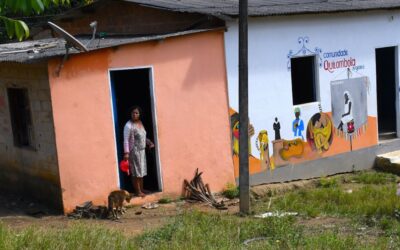Rachel Smolker, Energy Justice Network
COP11’s draft decision on impacts of biofuels on biodiversity, as discussed on Thursday, is remarkably meek in its recommendations on the issue of biodiversity impacts from biofuels. A wealth of evidence demonstrates serious harm to both biodiversity and to human rights and food security. Global opinion on biofuels has soured considerably in light of all this evidence. Yet CBD Parties appear to be largely asleep at the wheel.
The draft decision starts by acknowledging that demand for biomass resulting from development of biofuels “may” result in negative impacts; this is followed by a statement “also acknowledging the potential for biofuels technologies to make a positive contribution to mitigating climate change, another of the main drivers of biodiversity loss, and generating additional income, especially in rural areas.”
Treading carefully on the middle ground between these two statements, CBD appears essentially neutral towards a force that must now be recognized as one of the leading new drivers of biodiversity loss. Where are those stated positive impacts? As civil society organisations, we have followed the developments around biofuels for some years now – and we have seen only deforestation, expanding industrial monocultures, cultivation of invasive species, development of risky technologies like synthetic biology and, most obviously, escalating global hunger. Report after report has detailed these impacts. CBD has noted many concerns in informantion paper 65: in general terms – but it seems to have missed a large number of case study reports from around the world detailing the actual negative impacts on communities and biodiversity.
So, what does CBD advise in the face of so much clear evidence of serious destruction? It invites parties “to consider the use of various relevant voluntary tools regarding the impact of the production and use of biofuels on biodiversity, such as in strategic environment and socio-economic assessment and integrated land-use planning in accordance with national circumstances.” In other words, if they choose to, Parties can rely on “sustainability standards” to take care of the problems. Such voluntary standards are doomed to fail if for no other reason than that they are qualitative, whereas the damage from biofuels is largely quantitative, i.e. related to the very large scale of demand.
But Parties did not want to open the text up to further negotiation, especially as Canada threatened it would not hesitate to fight for further weakening the text should the opportunity arise. The Canadian delegate stated that the CBD “is not a food venue,” i.e. it should not take into consideration the impact of biofuels on food, but limit its scope to biodiversity – as if these were entirely independent of each other. Bolivia pointed out/reminded Parties that the CBD forum belongs to the people, and is part of the real world, where 1 billion people cannot afford to eat, a situation in which biofuels play a key role. (ie 1 in 7 people) Civil society was allowed no intervention.
National and regional policies are beginning to change in response to accumulating evidence. In the face of this year’s drought-related loss of the US corn crop – 40% of which is used as ethanol – the US is considering a repeal of their ethanol mandate. Meanwhile the EU is perhaps going to place limits on the use of food crops – unless pressure from the biofuels industry changes their mind.
Now is the time to call for countries to do away with the targets and mandates that are driving biofuel expansion, but this time, sadly, CBD will not rise to the occasion. However, Parties still have the opportunity and the obligation to implement X/37.




